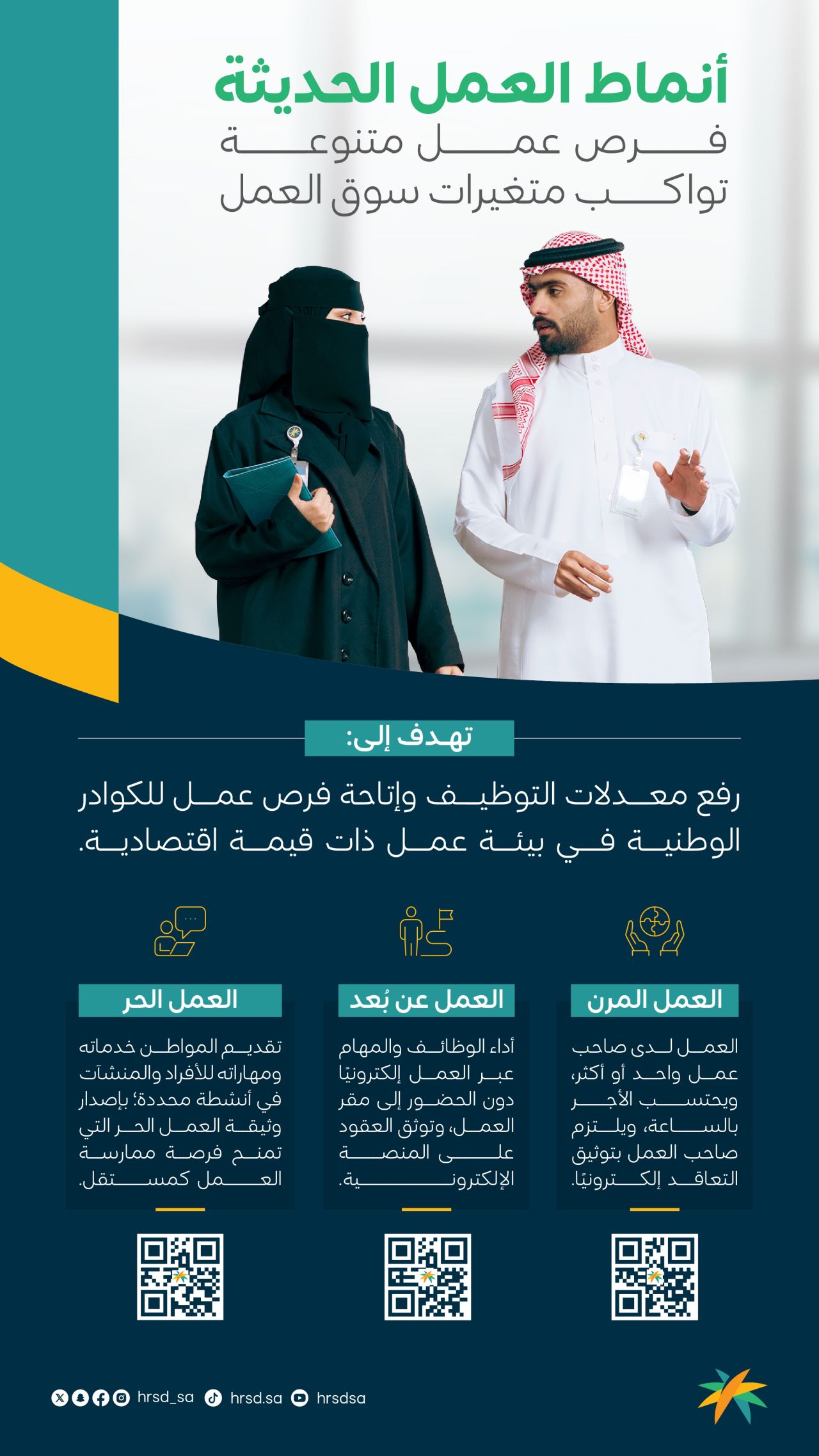
MHRSD launches remote work program; Aims to improve Saudi's job market
Employee RelationsEmployment Landscape#Trending#RemoteWork#Flexibility#Outlook2025
The Ministry of Human Resources and Social Development (MHRSD) has introduced the Remote Work Program, an initiative designed to support, regulate, and encourage remote work opportunities in the workplaces across Saudi Arabia.
The initiative aligned with the goals of Saudi Vision 2030, ensures diversification of talent and creates more job opportunities. The main focus of this program is to serve as a unified legal framework for remote work, enable better workplace flexibility, foster job localisation, and safeguard the rights of both employees and employers.
The program also aims to develop comprehensive solutions for remote work by establishing laws and regulations and fostering collaboration between government and private employers, creating a more dynamic and accessible job market.
According to MHRSD, “The Remote Work Program is a true partnership between the government and private sectors, designed to enhance the credibility and reliability of the Saudi labour market. The program offers numerous benefits to companies seeking flexible solutions and to employees searching for remote work opportunities, including the ability to work from anywhere at any time. By granting employees access to the program and allowing them the freedom to choose their workspace and hours, productivity is enhanced and unprecedented flexibility is achieved. Additionally, the Program facilitates connections between employers and qualified candidates, regardless of their geographic location.”
Additionally, the initiative bridges the gap between employers and skilled professionals, no matter where they are located. By focusing on identifying and empowering national talent, the program not only expands job opportunities but also helps meet the demands of the local market.
Through licensed service providers, the Remote Work Program ensures that all employees enjoy a secure and supportive environment. The Ministry will also issue freelancing certificates to local skilled workers so they can work with anyone or one or more organisations individually. By aligning with Saudi laws and adapting to the global shift toward remote work, the program promotes innovation and contributes to a thriving digital economy.

This isn’t the first time the Ministry has highlighted the importance of remote work. In May last year, to enhance workplace stability, protect employee rights, and attract skilled talent, the Ministry amended Article 27 of the labour law’s executive regulations. The amendements included increasing flexible work hours for the employee from 95 to 160 hours per month, and protecting the rights of the parties under labour contract within the flexible work system, to increase the adoption of modern work arragements.
You may also like:
- 2025 Outlook: How flexibility and diversity drive economic growth
- 7 Workplace Trends for 2025 that HRs must know
- Redefining Leadership: Key Lessons from 2024 for 2025
In the past, the Ministry prioritised employee safety during challenges like extreme weather conditions and the COVID-19 pandemic, and prohibited employers from demanding workers compensate for delayed hours or absences in such cases. Now, with the Remote Work Program, the Ministry’s focus is broader and more forward-looking, as it aims to create a comprehensive work environment that supports the growing digital economy while adapting to global shifts in the labour market, while being in alignment with Saudi laws and regulations, balancing innovation with legal protections for all stakeholders.
The Middle East is embracing more flexibility in the workplace, with 2024 seeing a rise in remote and flexible work that improved quality of life and boosted women's participation in the workforce.









